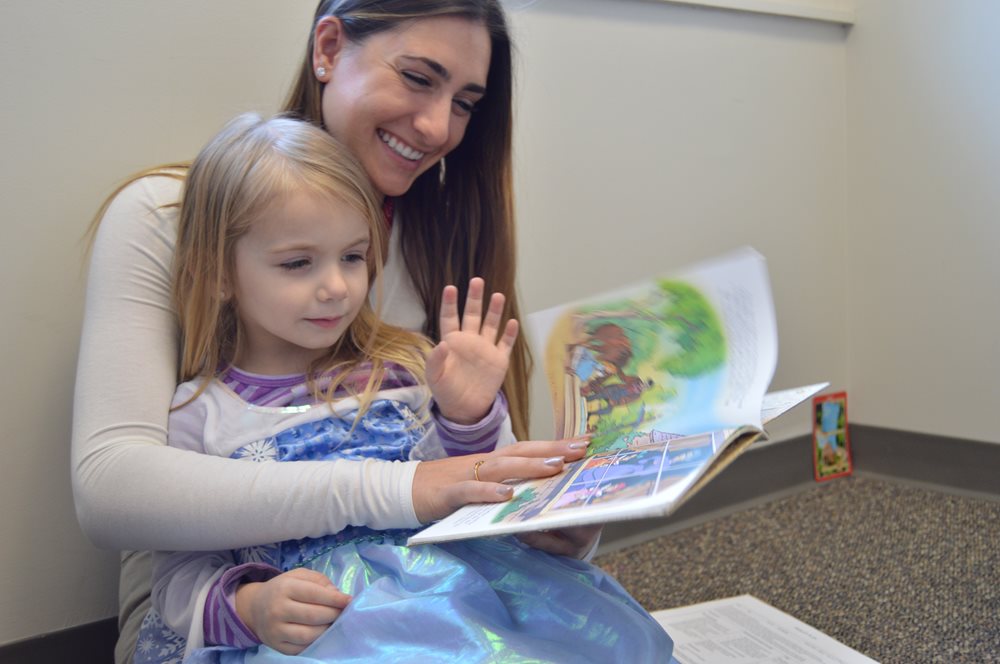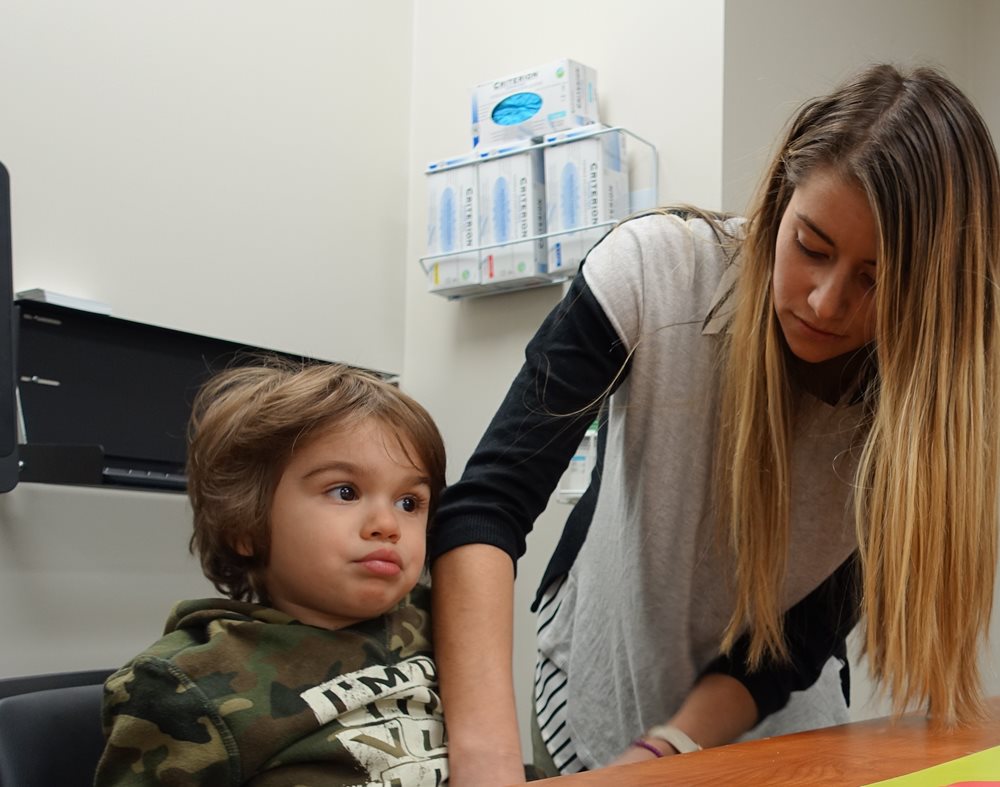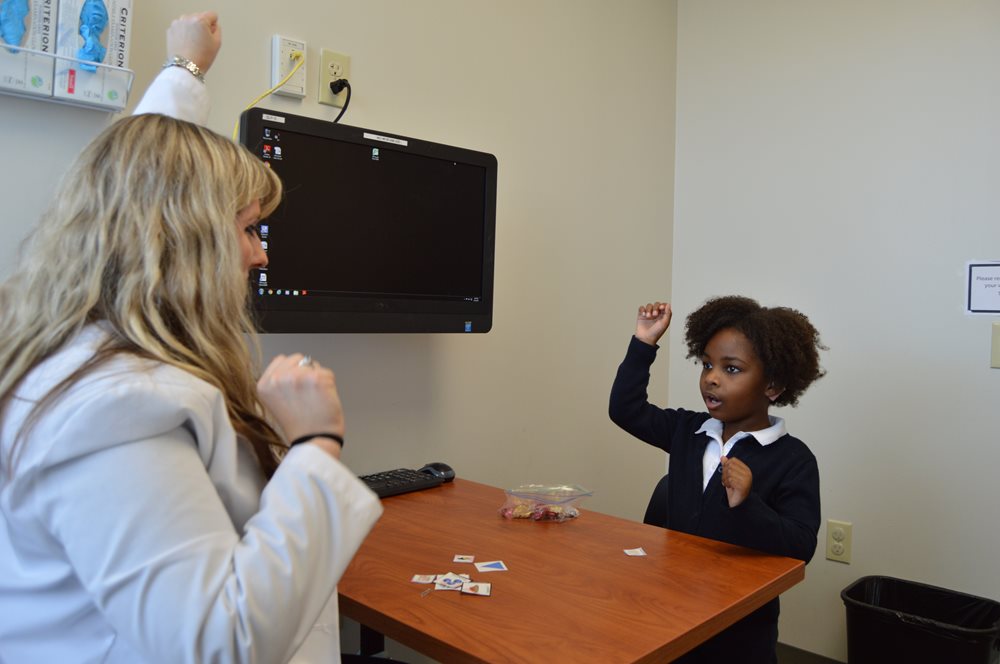Childhood Apraxia of Speech
Childhood apraxia of speech (CAS) is a motor speech disorder that makes it difficult for children to speak. Children diagnosed with apraxia of speech generally have a good understanding of language and know what they want to say. However, they have difficulty learning or carrying out the complex sequenced movements necessary for intelligible speech.
 Signs and Symptoms
Signs and Symptoms
- Does not always say words the same way every time.
- Tends to put the stress on the wrong syllable or word - difficulty with the timing, rhythm and flow of speech.
- Distorts or changes sounds.
- Difficulty producing longer, more complex words and phrases.
- Excessive movements of the mouth or attempting to position the mouth for sound production.
- Persistent or frequent regression in the number of words produced.
Testing and Diagnosis
 An accurate diagnosis of childhood apraxia of speech requires a comprehensive speech and language evaluation by a speech-language pathologist (SLP). The SLP will evaluate the child's speech skills and expressive and receptive language abilities, while gathering information about how the child communicates at home and in other situations.
An accurate diagnosis of childhood apraxia of speech requires a comprehensive speech and language evaluation by a speech-language pathologist (SLP). The SLP will evaluate the child's speech skills and expressive and receptive language abilities, while gathering information about how the child communicates at home and in other situations.
The SLP will look at the child’s oral-motor skills, speech melody (intonation), and how they say different sounds. The SLP will check how well a child says speech sounds alone and combined in syllables or words and how well others can understand what the child says.
A thorough assessment of a child's abilities is needed so therapy goals can be developed based on his/her individual needs.
Treatment
The majority of children with childhood apraxia of speech will experience significant improvement, if not complete recovery, with the correct treatment. Most children with apraxia of speech will benefit from meeting one on one with a SLP three to five times a week. They may also need to work with their parents or guardians to practice developing skills.
 Therapy for childhood apraxia of speech aims to improve speech coordination. If a child only has a limited number of words in his vocabulary, therapy will initially focus on improving his functional communication skills. If producing words is too difficult for a child initially, positive interactions may be achieved through other varying modes of communication, such as sign language, picture communication boards and/or an electronic communication devices such as a smart phone, tablet, or laptop computer that can be used to write or produce speech. Using other modes of communication while working on speech production has been found to promote verbal skills and decrease frustration in children while communicating.
Therapy for childhood apraxia of speech aims to improve speech coordination. If a child only has a limited number of words in his vocabulary, therapy will initially focus on improving his functional communication skills. If producing words is too difficult for a child initially, positive interactions may be achieved through other varying modes of communication, such as sign language, picture communication boards and/or an electronic communication devices such as a smart phone, tablet, or laptop computer that can be used to write or produce speech. Using other modes of communication while working on speech production has been found to promote verbal skills and decrease frustration in children while communicating.
A child with CAS will not learn speech sounds in the typical order and will not make progress without treatment. It can take a lot of work, but the child’s speech can improve.
The Speech-Language Institute (SLI) offers assessments and individualized treatment plans to help children with their communication. If you feel your child may need a speech assessment, contact SLI to schedule an appointment.